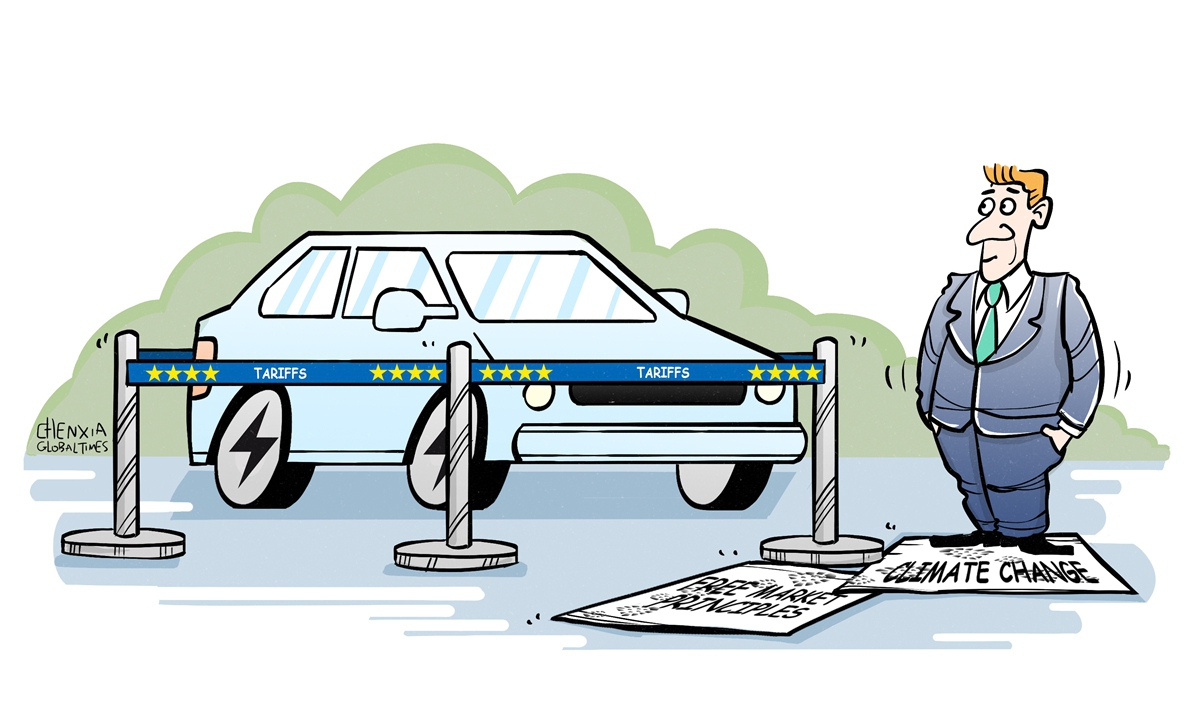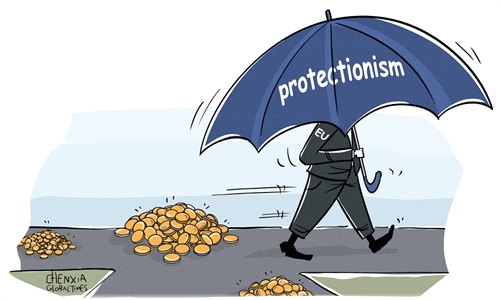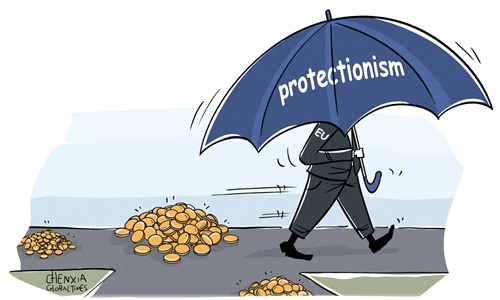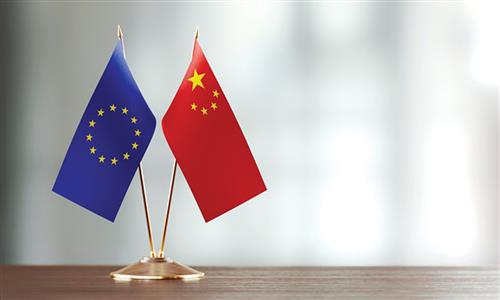
Illustration: Chen Xia/GT
At a juncture when China-EU trade relations are facing challenges, the latest remarks from the EU's trade chief-in-waiting apparently add uncertainty and complexity into the future of China-EU economic and trade relations. Politicians who recklessly escalate tensions and push China-EU relations to the brink need to recognize that the foundation of cooperation between the two regions is rooted in mutual interests. Disrupting this balance will only lead to greater losses for both sides.During a three-hour confirmation hearing by members of the European Parliament on Monday, Maros Sefcovic, who is to take over as the bloc's commissioner for trade and economic security, described China as the bloc's "most challenging trading partner" and he vowed to crack down on Chinese mainland-exported overcapacity "with all our force," the South China Morning Post reported on Tuesday.
While Sefcovic claimed not to be interested in further confrontation or trade wars with China, his tough rhetoric appears to be unmistakably aimed at escalating trade conflicts with China. "We will tackle with all our force overcapacities being created by China and threatening our industry in Europe," he said.
His remarks may serve as a microcosm of an upsetting trend in the EU's approach to trade relations with China, suggesting a willingness among some EU politicians to escalate tensions rather than seeking constructive dialogue and solutions. Such an adversarial stance risks deepening divisions rather than fostering cooperation. It disregards the long-established trade cooperation and interdependence that has characterized the relationship between China and the EU, which is both dangerous and shortsighted for the future of economic and trade collaboration between the two economies.
The rhetoric of "blame China" employed by some politicians may be an attempt to demonstrate their commitment to safeguarding the future of European industries; however, it ultimately reflects a shortsighted and irresponsible attitude toward the economic interests of the EU as a whole. A truly responsible approach would acknowledge the substantial benefits that have arisen from China-EU cooperation, as well as the potentially disastrous consequences of undermining such a vital partnership.
Industry stakeholders have voiced strong opposition to EU tariffs on Chinese electric vehicles, because they recognize that the imposition of anti-subsidy tariffs will not address the internal economic challenges faced by the EU; instead, it is likely to exacerbate existing conflicts and hinder overall development.
Divisions and challenges are inevitable in trade relations, but the key lies in whether both parties have the ability to seek reasonable solutions through constructive dialogue and negotiation, rather than allowing differences to escalate into confrontation. China has consistently adopted a restrained and rational approach when it comes to trade issues, prioritizing the resolution of differences through negotiation and consultation. This approach does not imply that China lacks the measures to respond to unfair treatment; rather, it reflects a deep understanding that dialogue and cooperation are the most effective pathways to resolving conflicts.
If the EU intends to crack down on Chinese imports "with all force," it is advised to first consider the potential measures that China may employ, as well as the broader implications such actions could have on the EU's own economic interests.
It is hoped that the EU could take a comprehensive view of the trade landscape and restrain misguided rhetoric and actions that could jeopardize the balance of China-EU relations. There is no winner in a trade war, which will only bring greater losses to both sides.
The EU also needs to address the question of how to deal with a developing China, which necessitates a strategy rooted in cooperation and dialogue rather than confrontation. China plays a pivotal role as a force for global peace and development. The EU needs to try to adapt to and embrace this reality, rather than taking a confrontational attitude toward China's progress. It is crucial for the EU to reassess its trade policies toward China, seeking more rational approaches that foster mutual benefit and understanding.



